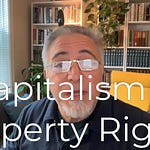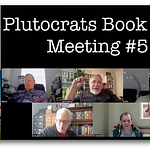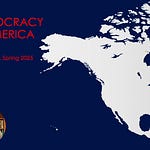I'm feeling a bit ambivalent about the whole OER thing. Partly I think this is because of the way the Minnesota State system seems to want to manage Open Ed, which I think is much too centralized and top-down (not really unlike the Progressivism Tracy and I have been discussing). I think the trend in MinnState is to imagine that Instructional Designers are the key to the future. I think I'll want to think of my own work in that context, and really understand and articulate what value I'm adding that goes beyond those formulas and rubrics.
Another element of my "issue" right now is not that unlike what I expressed on my very second day of retrenchment, when it was just beginning to sink in that I was not wanted as a member of the permanent faculty at Bemidji State. That thought was, roughly, that producing OERs is a luxury of people who have jobs. I felt bad after I wrote that and I almost took the post down or edited those ideas out. But think about it.
It's one thing, I think, to advocate for students. They face a lot of challenges and everything that society can do to remove unnecessary obstacles from their paths will probably benefit society in the long run. There are some "desirable difficulties" associated with learning that I don't think we should remove; I'm talking about things like crushing student debt, food insecurity that hinders learning, and annual textbooks costs that are sometimes higher than tuitions. But notice I'm saying society. I think everyone should contribute to removing obstacles, if we think it's a valuable goal. The solution is not to expect teachers to create free textbooks for their students, for free.
There's been a bit of a tendency in the last half-century in America (at least) to imagine teaching not as a job, but as a "calling". Partly this may come from a history that includes a lot of educating children being done by women in the home, and later by "school marms" who were either nuns or single women or wives whose incomes were secondary to family finances. Even if we haven't experienced it ourselves or watched a friend or relative live through it, we've all heard stories of elementary school teachers who were not only paid a starvation wage but regularly dipped into their own limited funds to buy crayons or paper for "their kids". This type of thing happens in higher ed as well. I remember, years ago when my daughter was a student at Duquesne University in Pittsburgh, an old woman died of complications of malnutrition and exposure. She was a homeless person who I think sometimes slept on the grounds of the campus. She was also an adjunct instructor who had worked at Duquesne for about forty years. That was a bit of a scandal, I recall, because Duquesne makes much of its Catholicism and even has a giant statue my daughter used to call "Scary Jesus" on campus.
We live in a world where we need to work to put food in our mouths. Yes, there are other things beside money. But money can buy shelter and food and help pay our own kids' tuitions. To drill down a little more specifically into my own experience, the tenure-track job I had at BSU came with a set of responsibilities; places where I was expected to add value. The main categories of these were, teaching effectiveness, research and writing, continuing education, student growth, and service. Yes, that's a lot for a job that basically paid about the same starting wage as the average garbage-truck driver in the Twin Cities (I make that comparison because when I was really little I apparently told my parents I wanted to be a garbage man). But whatever -- it's a calling. These criteria were fairly vague and people could generally set their own goals and then report on their successes in a variety of different ways. In that context, redesigning a course to make more use of content that was less expensive to students was at least something you could get credit for, on your professional development report (PDR). That could result in job security and even in pay raises and tenure.
Fast forward to the present. I have a one-year gig at Saint Paul College -- and don't get me wrong! I'm grateful for that and I'm excited about the job and looking forward to working with Saint Paul faculty and students! But even if I love them and they love me, it's over in a year when the instructor I'm replacing comes back from her sabbatical. Since I'm not independently wealthy, I'll need to find something else to do, to put food on the table. If I'm pretty good at teaching and people get some value out of the stuff I write, and I like it, then maybe I should try to put myself in a position where I can align those things and feed myself by pursuing my interests. But logically, this means getting some value back for the value I create, rather than doing it to score points on my PDR.
Thinking that through, I guess that means I will be doing much less unpaid writing of free content for students. That doesn't necessarily preclude me using what I have learned over the years to help others (tenure-track professors who are still investing in their careers) modify their courses and create OER. There are certainly less valuable things they could be doing with their time in those PDR criteria! And it would benefit students. Of course, I'd be doing that work for some type of compensation. But compensation from whom? I'm beginning to suspect I'd be happier working for a campus rather than for the system. Maybe I should explore that, this academic year. Certainly, I should shift my authoring work into channels where I can offer the output to people for some sort of appropriate compensation. This has all been a long-winded way, I guess, of saying I'll be taking my courses directly to the public just as soon as I can figure out exactly how to do that. So stay tuned!










